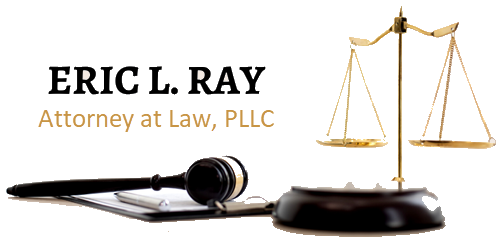What if You Use a Firearm in Self-Defense?
If you find yourself in a situation where you need to use a firearm in self-defense, it is crucial to understand how the law in Kentucky might view your actions. In 2024, there were important developments related to Kentucky’s wanton endangerment statute, particularly regarding first-degree wanton endangerment and its potential classification as a violent offense. Criminal defense attorney Eric Ray of Lexington, Kentucky, has experience handling cases involving firearms and self-defense. Here’s a breakdown of how the law may apply if you use a gun in self-defense, and what recent changes might mean for your case.
Understanding Wanton Endangerment in the First Degree
Under Kentucky law, wanton endangerment in the first degree (KRS 508.060) occurs when someone “wantonly engages in conduct which creates a substantial danger of death or serious physical injury to another person.” Wanton conduct means that the person is aware of and consciously disregards a substantial and unjustifiable risk.
For example, firing a gun in a situation where others could be harmed could lead to a first-degree wanton endangerment charge, even if no one is actually injured. The key element here is the creation of a substantial danger to others, which could apply even in self-defense scenarios.
Changes to the Wanton Endangerment Statute in 2024
In July 2024, the wanton endangerment 1st Degree statute (KRS 508.060) was amended to increase the penalty, if a firearm is discharged. Previously, Wanton Endangerment 1st Degree was a D Felony, which meant it carried a penalty of 1-5 years. Now, if a firearm is discharged, it is a C Felony, which means it carries a penalty of five to 10 years.
If you fire a gun in self-defense, but law enforcement does not believe you were justified in firing the gun, you may face a charge of first-degree wanton endangerment. The fact that you were acting in self-defense can be argued as a defense at trial, but it’s critical to note that self-defense does not automatically absolve you from a wanton endangerment charge if your actions are deemed reckless or unnecessarily dangerous.
Does Firing a Gun Make Wanton Endangerment a Violent Offense?
In Kentucky, KRS 439.3401 defines “violent offenses”, which affects whether you are eligible for probation instead of jail, or, if you are incarcerated, the calculation of the date you would become eligible for parole. The statute includes various crimes that would be considered violent to the average person, including murder, robbery, or strangulation. However, prior to July 15, 2024, wanton endangerment in the first degree was not listed as a violent offense under KRS 439.3401. This changed on July 15, 2024, when the statute was amended to make wanton endangerment 1st degree a violent offense, if the crime involved the discharge of a firearm. This change means that if you are found guilty, your sentence cannot be probated and you must serve at least 85% of your sentence. This change is significant because non-violent C felonies are eligible for release at 20%.
What Should You Do if Charged?
If you’ve used a firearm in self-defense and are facing charges such as wanton endangerment, it is essential to have an experienced criminal defense attorney on your side. Eric Ray can help you navigate these complex legal issues and craft a defense that explains why your actions were justified under Kentucky’s self-defense laws.
Your defense will likely center on proving that your use of force was justified and that you acted responsibly under the circumstances. However, given the seriousness of wanton endangerment charges – especially when a firearm is involved – it’s critical to take immediate legal action to protect your rights. Contact criminal defense attorney Eric Ray in Lexington, Kentucky at 859-242-3487 to discuss your case and ensure that your rights are fully protected.

Recent Comments